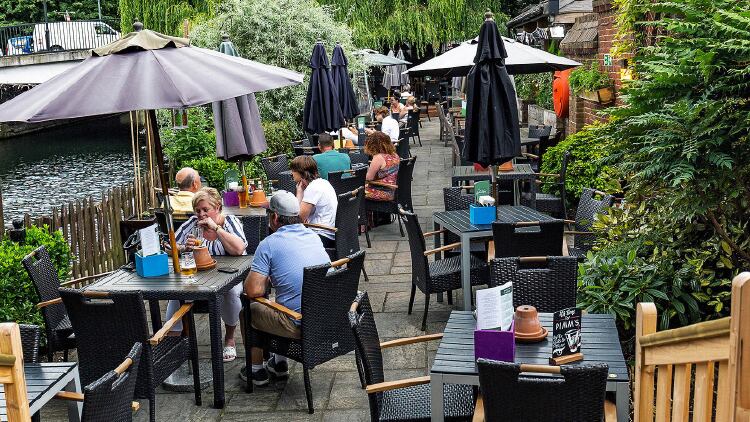Attributed to warm weather drawing crowds to pub gardens and terraces, the tracker showed pubs outperformed all other segments measured.
As is usually the case, sustained sunshine meant it was a particularly strong period for sales of beer and cider.
Though the heatwave dampened appetite for eating out, with restaurant sales slipping 1.6% and bars down 5% year-on-year.
Challenging summer
CGA by NIQ hospitality operators and food EMEA director Karl Chessell said: “August’s figures complete a challenging summer for hospitality.
“Ongoing price rises are making consumers cautious, and while the sunshine loosened some people’s spending in pubs, many restaurants have found it hard to generate the sustained real-terms growth that is needed to mitigate sharp increases in costs.
“The future remains bright for well-run, good-value and guest-focused hospitality groups, but the outlook remains difficult for some businesses as we move into the crucial final months of the year.”
Total sales, including at venues opened by groups in the last 12 months, were up by 3.9%, fractionally ahead of the UK’s current rate of inflation. It marked the sector’s first positive month since April and only the third this year.
It followed a 0.1% drop in sales in July after a flat month of trading in June and a 1% downturn in May.
Squeezed margins
For the sixth month out of eight, hospitality operators in London were outperformed by groups further afield, with sales at venues outside the M25 up 0.6% compared to 0.3% in the capital.
RSM UK head of leisure and hospitality Saxon Moseley added while a return to growth was good news for the sector, the figures “masked differing fortunes”, particularly for restaurants.
Moseley continued: “Of concern to operators will be the rise in the use of discounting to entice cautious consumers through the doors, which risks squeezing margins further amid rising input and labour costs.
“As we enter the final months of the year, all will be hoping that the Budget will provide a boost to consumer confidence and offer some relief to a sector that has borne the brunt of this year’s tax rises.”





